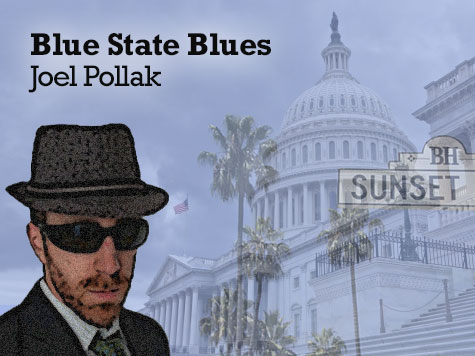For a while now, I have been describing President Barack Obama as the “mayor of America.” He is attempting to govern our large, populous, and impossibly complex society as if he were a big city mayor-for-life with untrammeled executive powers–and not as a temporary officeholder leading only one of three coequal branches of government.
Perhaps it’s his experiences as a left-wing activist in Chicago, or the dubious advice of Chicago cronies like Valerie Jarrett. Either way, we are all “Chicagoans,” now. And in more than one way.
Originally, it seemed that Obama was bringing Chicago-style governance to Washington–the cronyism, the racial and ethnic politics, the stubborn provinciality that outlasts globalization and growth.
Yet it occurred to me this week that our vast, great nation is not just being governed like a Democrat-locked, dysfunctional deep-blue city: more and more, we are starting to resemble one.
We no longer confront the problems of a Great Power–global economic trends, geopolitical challenges, large-scale environmental changes, and so on. We have those problems–but we also have so many small, niggling, festering issues that we lack the ability to address.
It’s bad enough, for example, that a “reset” Russia has launched a land war in Europe: we still have the mad mullahs of Iran to deal with, the barbaric ISIS, and a hitherto-unknown Al Qaeda offshoot.
The president talks up his economic performance–and if you were rich enough to weather the financial crisis or smart enough to be in tech, chances are you’re doing fine. Jobs have reached their 2008 levels, and we seem to have dodged a recession that loomed earlier in the year.
Yet the reason Americans lack confidence in the economy is that there are still so many problems: the millions who have left the workforce, the weak household incomes, the lingering bad debts.
Then there are the scandals. None of them has been properly investigated–not Fast & Furious, the IRS Scandal, the AP scandal, the VA scandal, the NSA scandals, nor the Benghazi scandal (though that is finally being probed more deeply in Congress). Even though they take up so little space or time in the media, they all seem to overlap somehow. And it is highly convenient for Obama that there are simply too many scandals: it makes it harder for any one of them to stick.
Likewise, the country seems to be lurching from one crisis to the next. It was bad enough under Bush, when 9/11 was just the beginning of a slew of problems: the anthrax scare, the West Nile virus panic, Katrina, and so on. Yet nothing compares to the sheer number and pace of problems we are seeing now. And the president shelters behind a wall of celebrity fêtes, and golf, and Nobels and Grammys and Emmys, and offers the Marines a clueless latte salute.
On Tuesday, I watched the debate among the candidates for city council in my adopted home town of Santa Monica, California, with a nagging sense that the whole spectacle seemed familiar. Not only because I had seen some of the same faces two years before, but also because so many of them seemed gripped by some utopian vision or another, and so few seemed to have grappled with the mundane tasks involved in running a large, growing city.
American politics has become that way today. Grand, abstract rhetoric dominates our debates. Few leaders seem to have any idea what to do–and those who do propose practical solutions, or time-honored values, are often laughed or bullied out of the discussion.
It is less than politics as usual. It is city politics on a national scale. We are all Chicagoans now–and not just because of who rules us, and how, but because of the way we ourselves have begun to function.

COMMENTS
Please let us know if you're having issues with commenting.